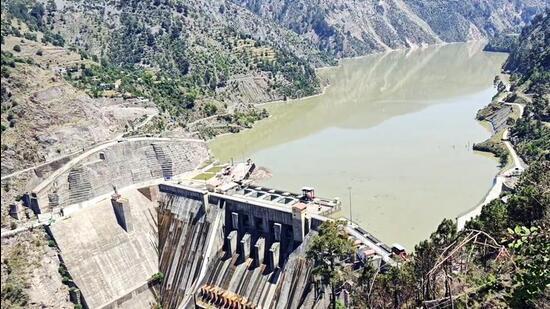
Escalating India-Pak tensions to hamper Pakistan’s growth, India to remain stable: Moody’s
The ongoing tensions between India and Pakistan have been a cause of concern for the global community, with both countries engaged in a war of words and military posturing. Amidst this backdrop, Moody’s Ratings, a leading credit rating agency, has warned that the escalating tensions could have significant economic implications for Pakistan, potentially hampering its growth prospects.
In a recent statement, Moody’s Ratings stated that the persistent increase in tensions could impair Pakistan’s access to external financing and pressure its foreign-exchange reserves, which remain well below what is required to meet its external debt payment needs. This, in turn, could have a negative impact on Pakistan’s economy, leading to a slowdown in growth and potentially even a recession.
On the other hand, Moody’s Ratings has predicted that India’s macroeconomic condition will remain stable, despite the tensions with Pakistan. India’s strong economic fundamentals, including a robust GDP growth rate, a low inflation rate, and a stable currency, are expected to continue to support its economy, even in the face of rising tensions with Pakistan.
The reason for this disparity lies in the differences in the economic fundamentals of the two countries. Pakistan’s economy is heavily reliant on foreign aid and debt, which makes it vulnerable to changes in global financial markets and has limited its ability to respond to external shocks. In contrast, India’s economy is more diversified and has a stronger domestic economy, which has enabled it to withstand external pressures.
Furthermore, India’s macroeconomic policy framework is more robust than Pakistan’s, with a more independent central bank and a more transparent and predictable policy-making process. This has helped to maintain investor confidence in the Indian economy, which has been reflected in the country’s strong stock market performance and foreign exchange reserves.
Pakistan, on the other hand, has faced significant challenges in recent years, including a decline in foreign investment, a devaluation of its currency, and a rise in inflation. The country’s foreign-exchange reserves have also been under pressure, with the State Bank of Pakistan (SBP) having to intervene in the foreign exchange market to maintain stability.
The impact of the escalating tensions between India and Pakistan on the Indian economy is likely to be limited, according to Moody’s Ratings. While there may be some short-term disruption to trade and investment flows, India’s strong economic fundamentals and robust policy framework are expected to enable the country to withstand the impact of the tensions.
In conclusion, the escalating tensions between India and Pakistan are likely to have significant economic implications for Pakistan, potentially hampering its growth prospects and increasing the risk of a recession. India, on the other hand, is expected to remain stable, with its strong economic fundamentals and robust policy framework enabling it to withstand the impact of the tensions.
As the situation continues to unfold, it is essential for Pakistan to take steps to strengthen its economy and reduce its reliance on foreign aid and debt. This could involve implementing economic reforms, increasing foreign investment, and diversifying its exports. India, on the other hand, should continue to focus on promoting economic growth and stability, while also addressing the issues that have contributed to the tensions with Pakistan.
In the end, the economic implications of the tensions between India and Pakistan will depend on the actions taken by both countries. Pakistan must address its economic vulnerabilities and implement reforms to strengthen its economy, while India must continue to promote economic growth and stability. Only by doing so can the region achieve lasting peace and prosperity.



